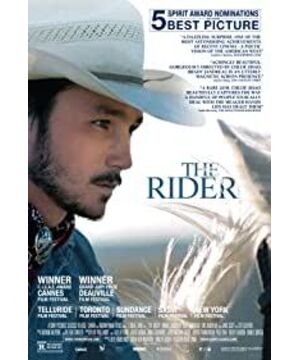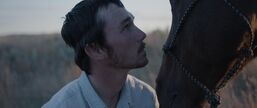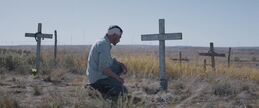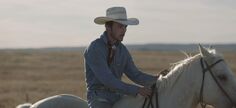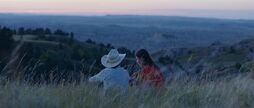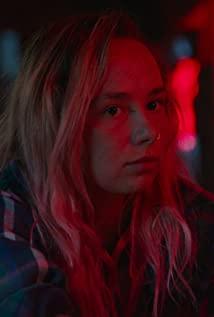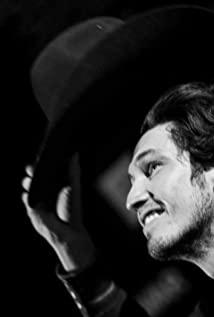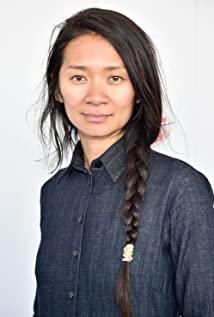(Text / Yang Shiyang)
What's so interesting about "Knights"? Thinking about it carefully, perhaps it is because the director consciously restrained himself and never exaggerated ambitions, but instead, this focus, concentration and quiet gaze have created a rare broadness. This story only presents the small world of the rider. This remote, barbaric world full of loess, sand, wind and sweat also shows a moving spiritual power. "Cavalier" is particularly American and particularly Western, and the abundant details it shows are typical of the presentation from the inside. It is difficult for people who have not been immersed for a long time to control it so confidently, accurately and easily. The director is a Chinese, the adopted daughter of Song Dandan, who studied film in the United States, which is even more intriguing. If you don't understand the background, no one would think that its creator did not live in the western United States since childhood, and no one would think that it came from a In the hands of a female director, in other words, the director stripped away all external labels, ethnic identity, gender identity, and only regarded himself as a "director", so, in a sense, various Pure achievement of this work.
The young cowboy Brady was accidentally injured, and the severe head injury had begun to cause epilepsy. He was declared by the doctor that he might stay away from the game in this life, but he did not agree with the verdict of fate and insisted on riding the horse again and again, but in the end he could only In exchange for a sigh. "Knight" does not open or close, avoids all the drama, does not start and turn, and has a firm anti-climax, like a poem that does not want to rhyme at all, dazzling with the vast glory of the west, and writing a young rider who does not complain to outsiders.
In more Westerns, people see male, outward, aggressive images, but in "Knights" they are more lonely, lonely and helpless. While struggling with illness, Brady often visited a friend. He was also a promising knight. He was injured in an accident and was almost paralyzed. He could only use his fingers to draw letters and have simple conversations. . In the ward, the two young riders were joking with each other, watching the video of previous competitions and interviews. The scene was really embarrassing. After visiting and talking again and again, a unique meaning gradually arises when the two face each other - in a way, they are mirror images of each other, and perhaps the paralyzed rider can be seen as Bra. A projection of Dee, even a warning to the future. From this perspective, Brady returned to the ward to visit again and again, and it became a dialogue between himself and himself. The other party used a few movable fingers to compare. Brady could recognize the words that were crossed out. In fact, what he wanted to say, maybe what Brady wanted to say, the two of them were intertwined and overlapped with each other in those moments. They are two people, but also one kind of person, which one is it? Maybe a "lost soul". What "Knight" has always presented is a tug-of-war to find spiritual meaning and spiritual identity. For Brady, being a cowboy is a professional identity. Innate, the identity and spiritual identity nurtured by the family and surrounding culture, his illness is not only physical, but more of a forcible deprivation of self-spiritual identity. Others think that he can do some other jobs, just like what he tried, going to the local supermarket as a cashier during the short period of recuperation, and this kind of simple livelihood is a spiritual sense for him. death penalty. He is a cowboy, silence and tenacity are a "character", so he cannot describe his inner distress to outsiders. Almost all of the film's lines deliberately go round and round to avoid Brady's strongest inner roar, leaving only the small talk about life, work, and certain gags in the dialogue between the characters. , all these seemingly unimportant life-like trivial conversations make those inner roars that are avoided even more bursting sound. "Knight" presents the inner explosion in an unusually quiet way.
The story, in its gentle narrative, has actually been advancing emotion again and again. In the end, Brady chose to shoot the wounded horse. When he whistled in the wilderness to say goodbye to the wild horse, he was also in the Say goodbye to who you are and the past. What does that end off the field mean? Is it to give up? Or is it a reflection of a sense of responsibility for oneself, for the family and for the future? Maybe a real maturity? Or maybe it is a metaphor for the inevitable decline of this ancient profession in the process of modernization?
"Knight" is like an interception of a small fragment, revealing some hidden sorrows, some unspoken sincerity, some unfinished dreams, and some melancholy after the sparseness.
View more about The Rider reviews


